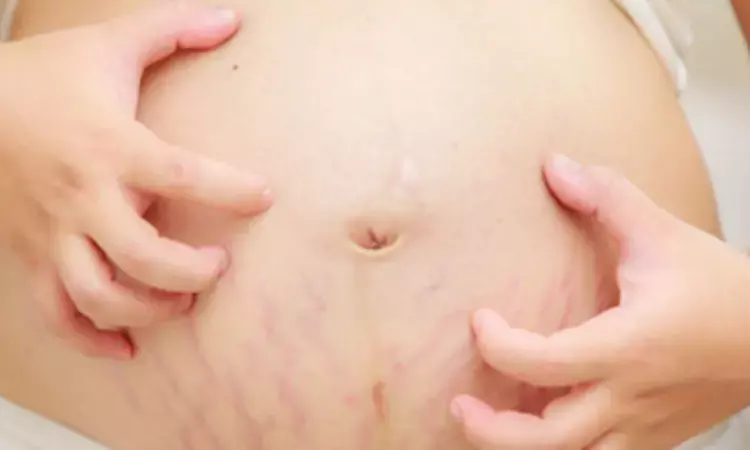- Home
- Medical news & Guidelines
- Anesthesiology
- Cardiology and CTVS
- Critical Care
- Dentistry
- Dermatology
- Diabetes and Endocrinology
- ENT
- Gastroenterology
- Medicine
- Nephrology
- Neurology
- Obstretics-Gynaecology
- Oncology
- Ophthalmology
- Orthopaedics
- Pediatrics-Neonatology
- Psychiatry
- Pulmonology
- Radiology
- Surgery
- Urology
- Laboratory Medicine
- Diet
- Nursing
- Paramedical
- Physiotherapy
- Health news
- Fact Check
- Bone Health Fact Check
- Brain Health Fact Check
- Cancer Related Fact Check
- Child Care Fact Check
- Dental and oral health fact check
- Diabetes and metabolic health fact check
- Diet and Nutrition Fact Check
- Eye and ENT Care Fact Check
- Fitness fact check
- Gut health fact check
- Heart health fact check
- Kidney health fact check
- Medical education fact check
- Men's health fact check
- Respiratory fact check
- Skin and hair care fact check
- Vaccine and Immunization fact check
- Women's health fact check
- AYUSH
- State News
- Andaman and Nicobar Islands
- Andhra Pradesh
- Arunachal Pradesh
- Assam
- Bihar
- Chandigarh
- Chattisgarh
- Dadra and Nagar Haveli
- Daman and Diu
- Delhi
- Goa
- Gujarat
- Haryana
- Himachal Pradesh
- Jammu & Kashmir
- Jharkhand
- Karnataka
- Kerala
- Ladakh
- Lakshadweep
- Madhya Pradesh
- Maharashtra
- Manipur
- Meghalaya
- Mizoram
- Nagaland
- Odisha
- Puducherry
- Punjab
- Rajasthan
- Sikkim
- Tamil Nadu
- Telangana
- Tripura
- Uttar Pradesh
- Uttrakhand
- West Bengal
- Medical Education
- Industry
Intrahepatic cholestasis of pregnancy tied to risk of spontaneous preterm labor: Study

Delhi: Disease severity of intrahepatic cholestasis of pregnancy (IHCP) is associated with an increased risk for spontaneous preterm labor and meconium staining, reveals a recent study. The study appears in the American Journal of Obstetrics & Gynecology.
IHCP is a liver disorder that occurs during pregnancy. It impairs the release of a digestive fluid called bile from liver cells and as a result bile builds up in the liver, impairing liver function.
Previous studies have shown IHCP to be associated with adverse pregnancy outcomes including sudden intrauterine fetal demise and fetal cardiac arrhythmias. This association is related to total bile acid (TBA) levels as a marker for disease severity. However, studies have not determined if IHCP severity is associated with other adverse neonatal outcomes. To determine the same, the researchers conducted a retrospective cohort study of singleton, non-anomalous gestations complicated by IHCP at Elmhurst Hospital Center from 2005-2019.
IHCP severity was defined by peak TBA levels (mmol/L): mild (TBA 10-19), low moderate (TBA 20-39), high moderate (TBA 40-99), and severe (TBA >100). The researchers examined rates of preterm prelabor rupture of membranes (PPROM), fetal growth restriction (FGR), meconium, spontaneous preterm labor (sPTL), cesarean section (CS) for non-reassuring fetal heart tracing (NRFHT), umbilical artery pH, NICU admission, and neonatal birthweight. The association of IHCP severity and adverse neonatal outcomes were determined. Mild IHCP was used as the base comparator in all analyses.
Following were the study's key findings:
· Of the 1202 pregnancies complicated by IHCP, 306 (25.5%) were mild, 449 were low moderate (37.4%), 327 were high moderate (27.2%), and 120 were severe (10.0%).
· After adjusting for confounders, progressive IHCP severity was associated with risk for sPTL (low moderate aOR 1.63; high moderate aOR 3.68; severe aOR 6.45) and meconium (low moderate aOR 1.33;high moderate aOR 2.66; severe aOR 3.87).
· There was no significant association between IHCP severity and other adverse obstetric outcomes.
"Findings suggest that IHCP disease severity is associated with increased risk for spontaneous preterm labor and meconium staining," the researchers concluded.
Dr Kamal Kant Kohli-MBBS, DTCD- a chest specialist with more than 30 years of practice and a flair for writing clinical articles, Dr Kamal Kant Kohli joined Medical Dialogues as a Chief Editor of Medical News. Besides writing articles, as an editor, he proofreads and verifies all the medical content published on Medical Dialogues including those coming from journals, studies,medical conferences,guidelines etc. Email: drkohli@medicaldialogues.in. Contact no. 011-43720751


